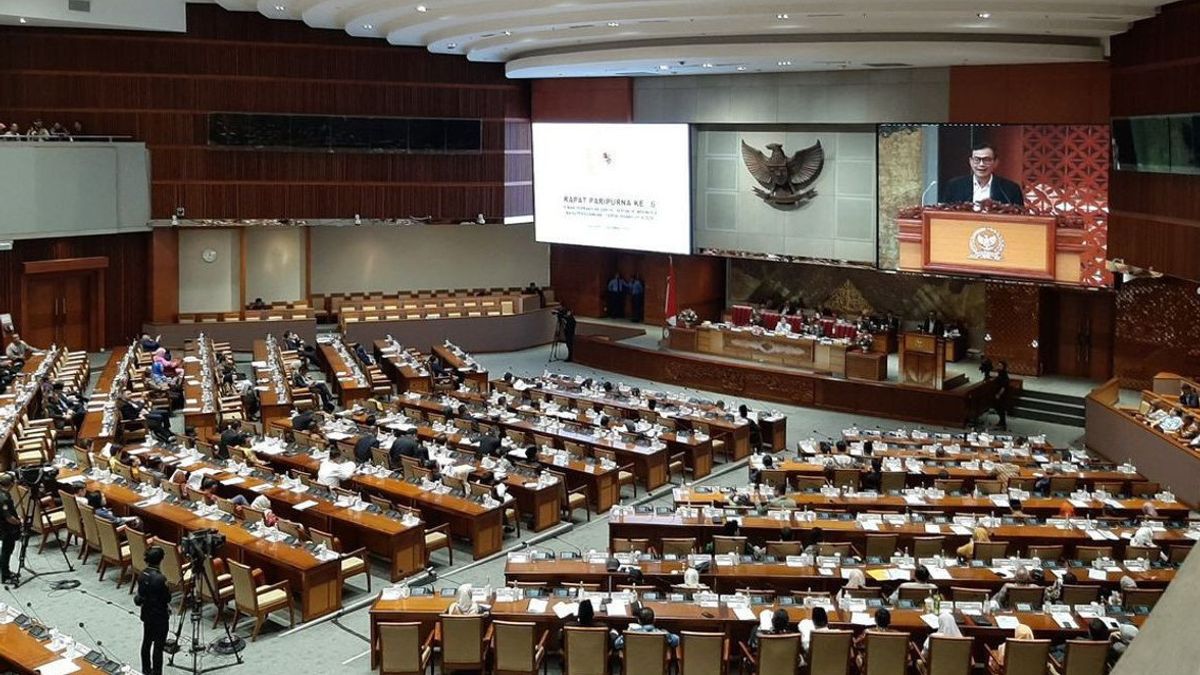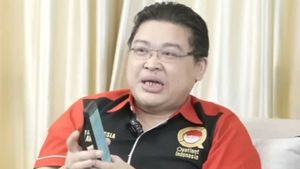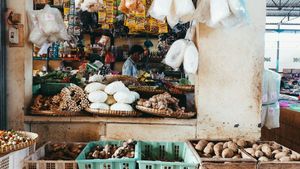JAKARTA - Chairman of the DPP Prosperous Justice Party (PKS) Mardani Ali Sera said that his party continued to reject the implementation of the next Pilkada to be held simultaneously in 2024.
Mardani reminded what happened in the 2019 Election. At that time, elections for the president, DPR, DPD, Provincial DPRD and Regency / Municipal DPRD were held simultaneously.
As a result, many members of the polling organization (KPPS) experienced illness and died due to fatigue in implementing the democratic process.
According to Mardani, if the Pilkada is enforced in 2024, the victims of the election organizers will be even greater. Because, this combines the national and regional elections.
"Forcing to continue holding elections and regional elections simultaneously in 2024 has the potential to cause a greater number of casualties than the 2019 election. It was recorded that 894 died and 5,175 officers were hospitalized at that time. We do not want a similar incident to happen again," said Mardani in his statement. , Tuesday, February 9.
Mardani said, the coercion of holding elections and regional elections simultaneously in 2024 has the opportunity to make voters' preferences more transactional and emotional.
"Money politics can become more massive, contestation is no longer based on program ideas. The function of representation has also decreased because elected officials feel they have no social contract with voters," he said.
However, Mardani also doubts that the simultaneous elections are more efficient. "For example, the State Budget Allocation for the 2019 Concurrent Election is IDR 25.12 trillion, while the 2014 General Election which has not yet been simultaneously costing IDR 24.8 trillion," he said.
For information, on November 26, 2020, the Indonesian Parliament drafted the proposed Election Law (RUU Pemilu). This bill, if passed, will revise the existing electoral laws.
One of the provisions contained in the Election Bill is to normalize the pilkada schedule. From the 2017 Pilkada to 2022 and the 2018 Pilkada to 2023. This bill revises the provisions of Law Number 10 of 2016 which stipulate that the next pilkada be synchronized in 2024.
Initially, only the PDI-P faction noted that they actually wanted the regional election to be held in 2024.
Then, it was reported that President Joko Widodo held discussions with political party leaders, one of which discussed the implementation of regional elections.
The gesture of Jokowi wanting the next pilkada to be held simultaneously in 2024 was revealed by the Director General of Politics and General Government of the Ministry of Home Affairs, Bahtiar.
"We are of the opinion that the Pilkada Law should be implemented first. There are goals to be achieved why the Pilkada is concurrent in 2024. Let us carry out the existing laws in accordance with the mandate of the Law, Law Number 10 Year 2016 Article 201 paragraph 8, Pilkada simultaneously we carry out in 2024, "said Bahtiar, some time ago.
As time progressed, the Chairman of the NasDem Party, Surya Paloh, instructed his party cadres in the DPR not to continue the revision of Law Number 7 of 2017 concerning Elections. He also asked his party cadres to support the 2024 Pilkada.
The DPR's Golkar Party faction stated that they currently reject the Election Bill (RUU) for discussion. This means that Golkar rejects the normalization of the next regional elections to be held in 2022 and 2023.
This contradicts the previous position of Golkar in discussing the DPR's proposed Election Bill. The bill contains the DPR's proposal that the 2017 Pilkada be held in 2022 and the 2018 Pilkada will be continued in 2023.
Previously, PKB also changed its attitude that the discussion of the DPR Election Bill proposed to be postponed. Meanwhile, a number of other parties such as PAN and PPP rejected the overall discussion of the Election Bill, which includes the normalization of the 2022 and 2023 Pilkada.
Finally, only two party factions, PKS and the Democrat Party, still want to discuss the Election Bill which will replace the existing electoral laws, including normalizing the implementation of regional elections.
The English, Chinese, Japanese, Arabic, and French versions are automatically generated by the AI. So there may still be inaccuracies in translating, please always see Indonesian as our main language. (system supported by DigitalSiber.id)













